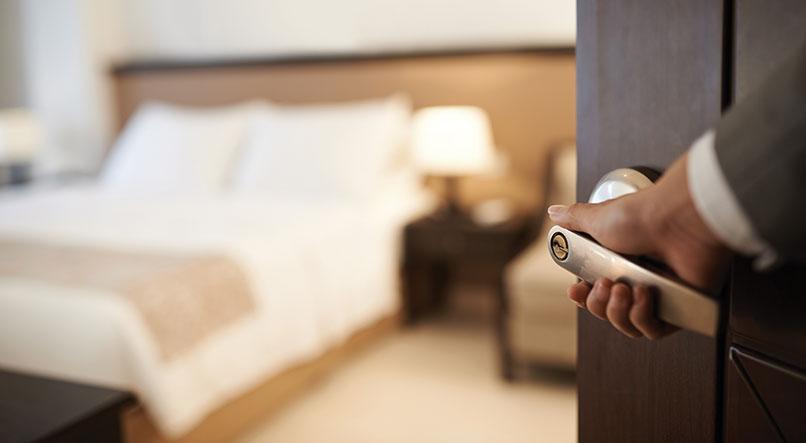
Are You Delivering the Cleanliness Guests Expect?

A recent study by the hotel booking site, Trivago, found that more than 60 percent of hotel guests read reviews on Yelp, Trip Advisor, AAA and elsewhere before booking rooms, and 71 percent of guests expect "above average" cleanliness ratings when choosing hotels. For hotels, there’s a clear need to meet the high expectations of guests to ensure repeat and new business, and it starts with understanding the how.
Meeting the expectation can be daunting, especially on heavy check-out days. Cleaning rooms of departing guests requires considerable more time than guests staying over. A recent time and motion study by Heath and Company Hospitality Advisors found that it takes an average 43 minutes to clean a departing guest's room, nearly 20 minutes longer than it takes for a stayover guest's room.
To stay ahead and be prepared, hotel managers need to identify heavy checkout days and set weekly housekeeping schedules that will maximize housekeeping capabilities during heavy checkout periods. It’s also worth assessing the makeup of the hotel’s guest list when creating these schedules. Rooms occupied by leisure travelers, particularly families with children, typically take longer to clean than rooms occupied by a business traveler.

Dalvin Green, product manager for Sanitaire, encourages hotel operators to take special care to ensure housekeeping crews avoid disturbing other guests. "Excessive noise during cleaning can impact customer reviews. Consider investing in quiet-operating vacuums that meet LEED noise and HEPA filtration requirements for green cleaning," Green said.
Make sure housekeeping employees are thoroughly trained when new vacuums and equipment are purchased. Show them how to change belts, bags and filters as well as how to properly remove clogs. Then have them complete those tasks to assure comprehension. Also demonstrate the proper way to operate the machine, including adjusting the height of the vacuum, Green adds.
Health and other hotel management consultants recommend managers develop a scorecard for each housekeeping employee. Conduct random periodic inspections to assure housekeepers follow the hotel's cleaning policy and meet the hotel's cleaning standards. Use the scorecard information to reward stellar performance and to offer additional training Incentivize housekeepers to take ownership of their cleaned rooms. William Frey, associate professor of hotel management at the Niagara University, suggests hotels encourage housekeepers to take more accountability for their work, such as leaving signed cards that confirms the room has been cleaned and who was responsible for it. Frey adds the practice encourages workers to deliver top-notch service and occasionally encourages guests to tip housekeepers for their efforts.
Continuous training, accountability and process evaluation are all critical elements for success behind the scenes and to ensure guest satisfaction which equates to high ratings and good reviews. Check out our quick checklist below for frequent follow-ups and visit Sanitaire.com for more tips and techniques.
Quick Checklist:
1. Chart the week’s guests to understand business v. leisure travelers as well as all checkouts. This should help guide cleaning schedules and time allocated to each room.
2. Evaluate your cleaning equipment for key features to drive success – noise level, filtration, multi-surface capabilities.
3. Train your staff on all equipment including regular maintenance.
4. Put the ownership on your staff – they should be invested and incentivized for excellent cleanliness ratings.

Leave a comment